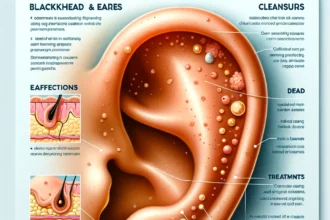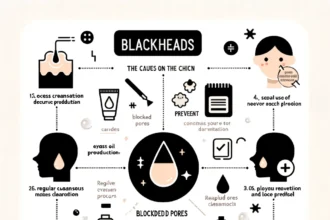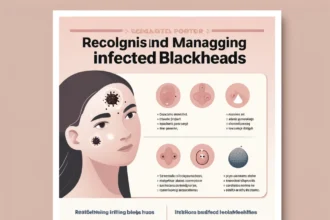In our quest for that perfect complexion, the array of skincare options can be overwhelming. Amidst the plethora of creams, gels, and treatments, hydrocortisone emerges as a possible contender. But does this commonly found steroid really hold the key to soothing inflamed skin and banishing breakouts? Let’s delve deep into the world of skincare, where we uncover the efficacy, uses, and precautions of using hydrocortisone for acne and pimples.
What is Hydrocortisone?
Hydrocortisone is a corticosteroid, a class of steroid hormone used widely for its anti-inflammatory and immunosuppressive properties. Available in creams, ointments, and lotions, hydrocortisone is typically hailed for its ability to reduce redness, swelling, and discomfort associated with various skin conditions.
How Does Hydrocortisone Work on Acne?
Acne and pimples often arise from the plugging of hair follicles with oil and dead skin cells, which can lead to inflammation. Hydrocortisone acts by suppressing the immune response, thereby reducing inflammation and alleviating some of the immediate redness and swelling associated with severe pimples or cystic acne lesions. However, its role in acne treatment is not as straightforward as it seems.
The Good:
- Immediate Relief: Hydrocortisone can provide quick relief from painful, inflamed acne cysts. It reduces swelling and redness, making it a go-to for flare-ups that need fast intervention.
- Versatility: It is readily available over the counter and can be used in conjunction with other acne treatments without significant interactions.
- The Cautionary Tales:
- Not a Long-Term Solution: While effective for short-term relief, hydrocortisone does not address the underlying causes of acne such as bacteria or oil production.
- Potential Side Effects: Prolonged use can lead to skin thinning, increased acne, and potentially systemic effects if absorbed in larger quantities.
Clinical Insight and Evidence
Several studies have examined the use of corticosteroids like hydrocortisone for acne. For instance, a study published in the Journal of Dermatological Treatment highlighted that when combined with other treatments, low-dose hydrocortisone can help reduce the severity of acute acne symptoms. However, experts caution against its long-term use due to potential adverse effects, such as skin atrophy and worsening of acne symptoms after discontinuation.
Real-Life Usage
Consider the story of Emily, a 28-year-old who battled with severe cystic acne. After trying numerous treatments, she turned to a hydrocortisone cream as part of her emergency skincare regimen. “It was like a quick fix,” she shares. “The redness and the pain would diminish overnight, but it wasn’t a cure. My acne would come back, often worse, if I used it too frequently.”
Guidelines for Using Hydrocortisone for Acne
- Short-Term Use Only: Limit the use of hydrocortisone cream to occasional spot treatments to avoid adverse effects.
- Consult a Dermatologist: Always consult with a skincare professional before incorporating it into your routine, especially if you have persistent acne.
- Follow Instructions: Use as directed, typically applying a small amount to the affected area once or twice daily.
Alternative Treatments
Given the limitations of hydrocortisone for treating acne, exploring alternative options is crucial. Here are a few:
- Salicylic Acid: A beta-hydroxy acid that deeply exfoliates and unclogs pores, reducing the occurrence of pimples.
- Benzoyl Peroxide: Kills bacteria associated with acne and helps clear out dead skin cells.
- Retinoids: Vitamin A derivatives that speed up cell turnover and prevent hair follicles from clogging.
Conclusion
While hydrocortisone can be a valuable tool in your acne-fighting arsenal, particularly for short-term relief of inflammation, it is not a cure-all. Its use should be measured and monitored to avoid potential complications. Always consider a comprehensive skincare approach that addresses the root causes of acne—consult with a dermatologist to find the best treatment regimen for your skin type.
Embracing proper skincare habits and exploring proven acne treatments can lead you to the clear, healthy skin you desire—beyond just a quick fix. Remember, the journey to better skin is a marathon, not a sprint, and every step you take is a step towards a healthier, more confident you.







Howdy! Do you know if they make any plugins to safeguard against hackers? I’m kinda paranoid about losing everything I’ve worked hard on. Any suggestions?
This is really well-researched.